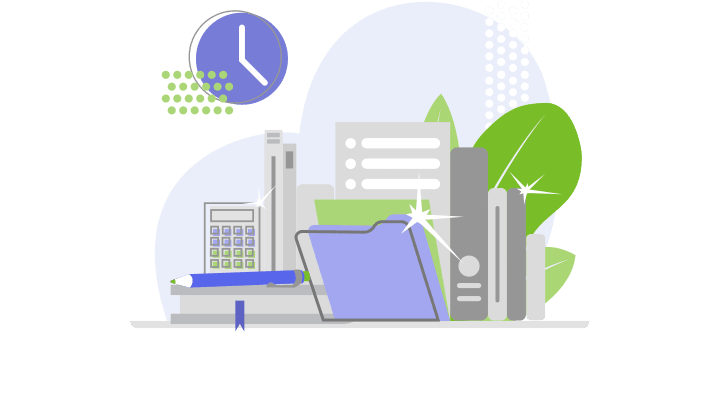Bookkeeping
CPAs vs Licensed Tax Preparers

EAs and CPAs are both knowledgeable, experienced professionals who are required to maintain high ethical standards. The primary difference between an EA vs CPA is that EAs specialize in taxation, and CPAs https://www.bookstime.com/ can specialize in taxation and more. When you’re looking to hire a tax professional, you want someone knowledgeable — someone you can trust to get the job done and keep your personal information secure.
Compare the best tax software of 2024
Get unlimited advice, an expert final review and your maximum refund, guaranteed. Many EAs are also members of the National Association of Enrolled Agents, which has even tax preparer vs cpa higher standards for continuing education, as well as its own Code of Ethics. CPAs are likely to charge higher fees when representing and advising their clients.

Financial Planner Association: Why You Need Them in 2024
- Deciding what type of tax professional is best for you can be a challenge.
- It should be mentioned that the job of Tax Preparers are started to be infringed by the existence of tax software and the E-file program with the IRS that is gaining popularity.
- Always shop around and get pricing upfront from a potential tax preparer.
- Due to their extensive credentials, CPAs do not have limited representation rights and are therefore authorized to represent their clients before the IRS, along with attorneys and enrolled agents.
There are tax preparers who are certified and have “unlimited representation rights,” according to the IRS, and there are those who have “limited representation rights.” CPAs are professionals who have unlimited representation rights. Both CPAs and Tax Preparers are tax professionals with a similar competency in that they can both fulfill the task of preparing and filing tax returns. If your tax situation is simple enough that you just need your income and deductions organized on a tax return, then you can get by using a tax preparer and generally paying a lower fee. However, if your tax needs require added value knowledge and service, then you should work with a CPA or CPA firm such as Gamburg CPA PC.
Working with an EA
- Their work experience might suit them to a specific kind of client—on individuals, small businesses, large corporations, or even non-profits—or a specific industry.
- That means that tax preparers are not required to take Continuing Education Courses (CPEs), which are a requirement for all CPA professionals.
- The first two types of tax preparers do not require credentials beyond a PTIN (preparer tax identification number), and not all states require a non-credentialed tax preparer to pass a tax competency exam.
- A CPA can formulate budgets, offer advice on investment strategy, weigh the merits of mergers or acquisitions, or offer attestation services.
- The article will prioritize the licensed Tax Preparer authorized by the Internal Revenue Service (IRS) and indicate which is being referred to in a particular section.
- CPAs are federally approved to represent you in all matters before the IRS.
- Just like an Enrolled Agent, a CPA is qualified to provide tax services and to represent clients before the IRS.
Kemberley Washington is a tax journalist and provides consumer-friendly tax tips for individuals and businesses. She has been instrumental in tax product reviews and online tax calculators to help individuals make informed tax decisions. Her work has been featured in Yahoo Finance, Bankrate.com, SmartAsset, Black Enterprise, New Orleans Agenda, and more. Consult with other people in your industry if you are self-employed or own a small business or seek advice from members of a professional organization.
CFP vs ChFC: How Do These Professionals Differ in 2024?
So if a client’s taxes have been audited, the Enrolled Agent or the CPA can communicate with the IRS on the client’s behalf. CPAs are generally more concerned with performing quality work, as opposed to sheer quantity. Our firm might even recommend clients to tax preparers if we feel that their tax situation is simple enough that we cannot provide any added value. You may not need a professional if your tax situation is straightforward, but both CPAs and licensed tax preparers make for great tax preparation options if your tax situation is complicated enough to warrant paying for help. Any tax professional with an IRS preparer tax identification number (PTIN) is authorized to prepare federal tax returns. However, tax professionals have differing levels of skills, education and expertise.

They usually work with individuals and small business owners who would be simple taxpayers and do not want to rely on tax software to do their job. Every state has a Board of Accountancy, which issues CPA licenses, sets minimum educational requirements, administers exams, and establishes other state-specific requirements. Many states have reciprocity agreements that allow a CPA with a single state’s license to practice more broadly—a map of CPE reciprocity within the US is available here. The EA credential is issued directly by the IRS so these professionals often have unique insight into dealing with complex IRS issues. Their hourly rate is typically lower than that of CPAs so they’re often the better option for cost-conscious taxpayers.
CPAs are best for broader accounting needs and identifying credits and deductions to increase your tax refund or lower your tax bill. It is definitely faster to dive into becoming a tax preparer; however, the path to a CPA also equips tax professionals with the necessary knowledge and experience to take on clients confidently. Do you review your tax return before you sign it to make sure that such a thing will not happen to you? Some tax preparers might be willing to let their clients take such a risk in order to get a higher refund; most CPAs however, will not risk losing their license for you. This is not to say that all CPAs are honest, because some have lost their license and even went to jail. Anyone can be a paid tax return preparer as long as they have an IRS Preparer Tax Identification Number (PTIN).


